September 9 – September 13, 2024
The Department of Pediatrics Clinical Care Week is a hybrid conference focused on fostering an interdisciplinary learning community among health care providers. This weeklong conference will highlight innovations in clinical care through state and nationwide lenses. Continuing education credit is provided to encourage pediatricians and nurses to continue their growth and education. This newly reimagined conference takes the place of Seminars in Pediatrics and helps support our mission to promote and enhance the health of children and families.
- Outline new evidence-based clinical practice guidelines and best practice recommendations in relevant pediatric topics.
- Describe medical, social, and environmental issues impacting pediatric health.
- Develop relationships with other pediatric health care providers to build community and work collaboratively on addressing the health of children and families in our community.
- Examine best practices for incorporating diversity, equity, and inclusion in clinical care practice.
Innovation Forum
On Thursday, September, 12th, Clinical Care Week will be hosting the hybrid Innovation Forum in HSLC 1345. The forum will start with a luncheon from 11:30-12:30 and then move into exciting and engaging content from 12:30 to 3:30 p.m.

Continuing Medical Education Credit
Clinical Care Week will be offering Continuing Medical Education Credits.

Session Recordings
If you missed a session, you can find it them under the session title below.

Session Information
This is an accordion element with a series of buttons that open and close related content panels.
Monday, September 9
Updates in Clinical Care, Facility Planning, and Strategic Growth for AFCH and UW Health Kids
8-9 a.m. via zoom
Session Overview: With our successes and expanding regional reputation, our children’s hospital and broader UWH Kids system of care continues to experience increasing demands and pressure on access. This presentation will provide updates on how we’re responding to this need, specifically as relates to the advancement of innovative clinical programs, facility planning and construction, leveraging our EMR and AI tools to provide more efficient care and support our teams, as well as evolving strategic growth opportunities.
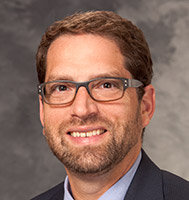 |
Joshua Ross, MD – professor, Department of Emergency Medicine, Department of Pediatrics, University of Wisconsin School of Medicine and Public Health |
The ABCs of EBCD: Integrating the Patient Perspective in Quality Improvement Efforts
12-1 p.m. via zoom
Session Overview: The patient and family perspective is critical to quality and safety efforts. Experience based co-design (EBCD) is an approach that enables patients, families, and healthcare providers to co-design quality improvement initiatives together, at local and system levels.
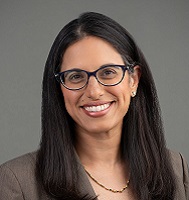 |
Nina Menda, MD – associate professor, Neonatology Director of Quality and Safety, Division of Neonatology and Newborn Nursery, Department of Pediatrics, University of Wisconsin School of Medicine and Public Health |
 |
Emily Gregory – Meriter NICU Parent Partner |
Tuesday, September 10
Trauma-Informed Care: A PICU Case Study
8-9 a.m. via zoom
Session Overview: This session presents a pediatric critical care case study that highlights the utility of trauma-informed-care skills for all providers and staff in the setting of acute trauma and loss. The panel consists of a 3yo patient’s PICU care team, as well as the patient’s parents—who will share their experience and what helped and hindered their ability to cope in the most difficult circumstances. Learners and listeners will gain awareness of what a trauma-informed-care approach looks like in clinical practice, and sharpen skills for difficult conversations.
UW Health Well-Being Resources – click the link for information regarding well-being and processing trauma.
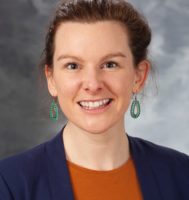 |
Moderator: Rev. Chelsea Cornelius, M.Div, BCC – Pediatric Staff Chaplain, American Family Children’s Hospital, UW Health |
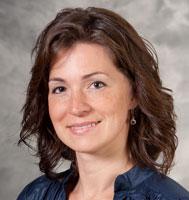 |
Panelist: Melissa Cercone, MD – associate professor, fellowship director, Division of Critical Care, Department of Pediatrics, University of Wisconsin School of Medicine and Public Health |
| Panelist: Sara Larsen, RN – PICU nurse, American Family Children’s Hospital | |
 |
Panelist: Brianna Riechers – PICU Certified Child Life Specialist, American Family Children’s Hospital |
 |
Panelist: Carrie McClory and Bob McClory – Family Panelists |
Application of Integrative Medicine in Pediatrics
12-1 p.m. via zoom
Session Overview: In this session we will discuss how we can incorporate integrative approaches to pediatric care in our everyday clinical practice. We will also learn about how specific integrative therapies can be used for common pediatric conditions.
 |
Mala Mathur, MD, MPH, FAAP – associate professor, director of professional development, Department of Pediatrics, University of Wisconsin School of Medicine and Public Health |
Wednesday, September 11
Resources Beyond Clinic Walls: Highlighting Community Partnerships
8-9 a.m. via zoom
Session Overview: This panel session is intended to highlight three community programs (RISE, Children’s Resource Center, and Safe Harbor) and their dedicated employees and volunteers. Learn about the impactful work of these community resources and how to continue to best partner with them to serve our patients and families.
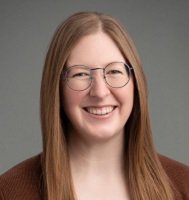 |
Moderator: Megan Yanny, MD – assistant professor, Division of General Pediatrics & Adolescent Medicine, Department of Pediatrics, University of Wisconsin Madison School of Medicine and Public Health |
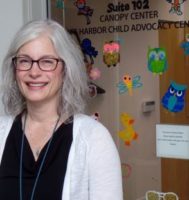 |
Panelist: Jennifer Ginsburg, MSSW, LCSW – Executive Director, Safe Harbor |
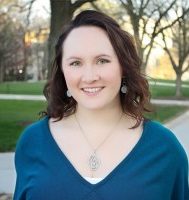 |
Panelist: Sara Flugum, MSW – Respite & Court Ordered Evaluations Program Director at RISE |
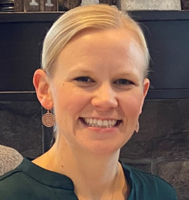 |
Panelist: Meredith Vitaioli – Director, Children’s Resource Center – South |
Evaluation and Management of Well-Appearing Febrile Infants 8 to 60 Days old
12- 1 p.m. via zoom
Session Overview: This presentation aims to explore the guidelines set forth by the American Academy of Pediatrics (AAP) for the assessment and care of well-appearing, full-term infants aged 8 to 60 days who present with a fever exceeding 38°C. We will delve into the historical context of managing febrile infants, followed by an examination of the relevant literature that has led to the essential action statements formulated by the AAP. Finally, we will delve into the three distinct algorithms summarizing the recommendations tailored to infants within the age ranges of 8 to 21 days, 22 to 28 days, and 29 to 60 days.
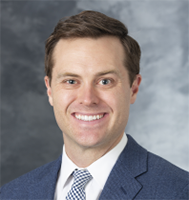 |
Sam Dillman, MD – assistant professor, Division of Pediatric Emergency Medicine, University of Wisconsin Madison School of Medicine and Public Health |
Pediatric Grand Rounds: Thursday, September 12
Pediatrics Grand Rounds
7:30-8:30 a.m. via zoom
Session Overview:This talk will briefly discuss the history of fetal surgery and the development of the fetal center at the University of Wisconsin. It will touch on fetal surgical indications and outcomes as well as the future of fetal surgery at UW.
Session Title:The Birth of Fetal Surgery at the University of Wisconsin
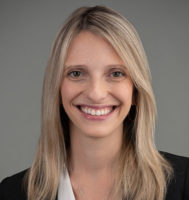 |
Inna Neyman Lobeck, MD – assistant professor of pediatric surgery, Director UW Health Fetal Diagnosis and Treatment Center, Department of Surgery, University of Wisconsin School of Medicine and Public Health |
Innovation Forum: Thursday, September 12
Clinical Care Week Luncheon
11:30-12:30 p.m. HLSC 1345 and zoom
Register for The Innovation Forum Now!
Navigating Tender Conversations: A Call to Connection
12:30-1:30 p.m. HSLC 1345 and zoom
Session Overview: The art of healing sometimes flourishes most beautifully when we listen with the intent to understand, rather than with the intent to fix. This session will focus on some practical suggestions and pitfalls to avoid when navigating tender conversations with patients and families.
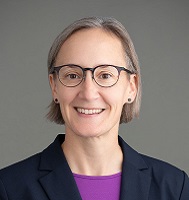 |
Anne Marsh, MD – associate professor, Division of Hematology, Oncology & Bone Marrow Transplant, Department of Pediatrics, University of Wisconsin School of Medicine and Public Health |
Pediatric Puzzler: A Multidisciplinary Case-Based Discussion
1:30-2:45 p.m. HSLC 1345 and zoom
Session Overview: Pediatric Puzzler is back! Using a Firm Rounds format, Dr. Allen will facilitate discussion of a complex case with interactive (anonymous) audience input on decision-making as well as comments from primary care and specialists added along the way to highlight different clinical approaches and learning points.
Pediatric Puzzler: A Multidisciplinary Case-Based Discussion
1:30-2:45 p.m. HSLC 1345 and zoom
Session Overview: Pediatric Puzzler is back! Using a Firm Rounds format, Dr. Allen will facilitate discussion of a complex case with interactive (anonymous) audience input on decision-making as well as comments from primary care and specialists added along the way to highlight different clinical approaches and learning points.
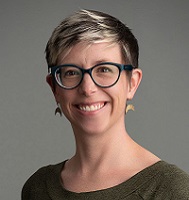 |
Moderator: Britt Allen, MD – associate professor, Division of General Pediatrics & Adolescent Medicine, Department of Pediatrics, University of Wisconsin School of Madison and Public Health |
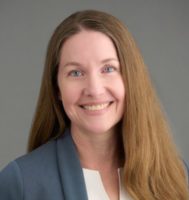 |
Specialist: Tess Chapman, MD, MA, FACR – professor, program director of pediatric radiology fellowship, Department of Pediatric Radiology & Neuroradiology, University of Wisconsin School of Medicine and Public Health |
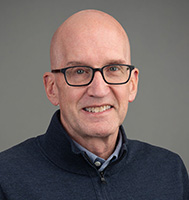 |
Specialist: David Bernhardt, MD – professor, fellowship director, Division of General Pediatrics & Adolescent Medicine, Department of Pediatrics, University of Wisconsin School of Medicine and Public Health |
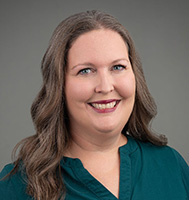 |
Specialist: Paula Cody, MD, MPH – associate professor, Division of General Pediatrics & Adolescent Medicine, Department of Pediatrics, University of Wisconsin School of Medicine and Public Health |
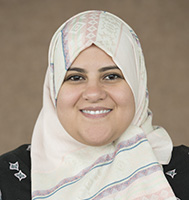 |
Specialist: Arij Beshish, MBBCh, PhD – assistant professor, Division of Pulmonology & Sleep Medicine, Department of Pediatrics, University of Wisconsin School of Medicine and Public Health |
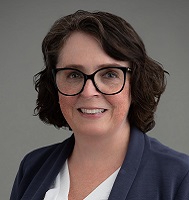 |
Specialist: Allison Redpath, MD – associate professor, Division of Nephrology, Department of Pediatrics, University of Wisconsin School of Medicine and Public Health |
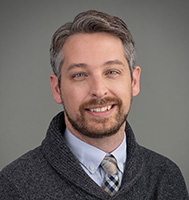 |
Specialist: Dana Irrer, MD – assistant professor, Division of Cardiology, Department of Pediatrics, University of Wisconsin School of Medicine and Public Health |
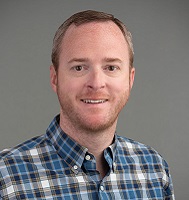 |
Specialist: Thomas Ratchford, MD – assistant professor, Division of Gastroenterology, Hepatology & Nutrition, Department of Pediatrics, University of Wisconsin School of Medicine and Public Health |
Two Minutes, Two Slides, Two Questions
3-3:40 HSLC 1345 and zoom
| Time | Speaker |
| 3:00 | 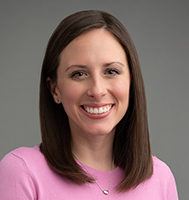 Moderator: Taylor House, MD, MS – assistant professor, Division of Nephrology, Department of Pediatrics, University of Wisconsin School of Medicine and Public Health Moderator: Taylor House, MD, MS – assistant professor, Division of Nephrology, Department of Pediatrics, University of Wisconsin School of Medicine and Public Health |
| 3:02-3:06
|
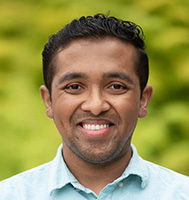 Cris Ebby, MD – fellow, Division of Hospital Medicine and Complex Care, Department of Pediatrics, University of Wisconsin School of Medicine and Public Health Cris Ebby, MD – fellow, Division of Hospital Medicine and Complex Care, Department of Pediatrics, University of Wisconsin School of Medicine and Public Health |
| 3:06-3:10 | 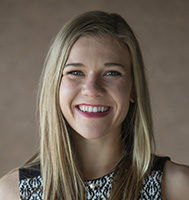 Brianna Gerhartz, DO – resident, Department of Pediatrics, University of Wisconsin School of Medicine and Public Health Brianna Gerhartz, DO – resident, Department of Pediatrics, University of Wisconsin School of Medicine and Public Health |
| 3:10-3:14
|
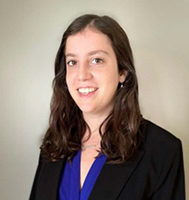 Julia Clemens, MD – resident, Department of Pediatrics, University of Wisconsin School of Medicine and Public Health Julia Clemens, MD – resident, Department of Pediatrics, University of Wisconsin School of Medicine and Public Health |
| 3:14-3:18
|
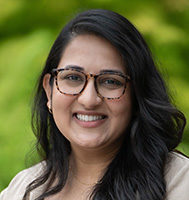 Rutvi Shah, MD – fellow, Division of Neonatology and Newborn Nursery, Department of Pediatrics, University of Wisconsin School of Medicine and Public Health Rutvi Shah, MD – fellow, Division of Neonatology and Newborn Nursery, Department of Pediatrics, University of Wisconsin School of Medicine and Public Health |
| 3:18-3:22
|
 Jenny Piciw – medical scientist training program, University of Wisconsin School of Medicine and Public Health Jenny Piciw – medical scientist training program, University of Wisconsin School of Medicine and Public Health |
| 3:22-3:26
|
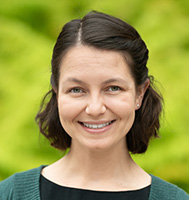 Natalia Kot, MD – fellow, Division of Hospital Medicine and Complex Care, Department of Pediatrics, University of Wisconsin School of Medicine and Public Health Natalia Kot, MD – fellow, Division of Hospital Medicine and Complex Care, Department of Pediatrics, University of Wisconsin School of Medicine and Public Health |
| 3:26-3:30
|
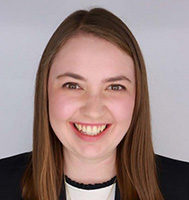 Allison Emmet, MD –resident, Department of Pediatrics, University of Wisconsin School of Medicine and Public Health Allison Emmet, MD –resident, Department of Pediatrics, University of Wisconsin School of Medicine and Public Health |
| 3:30-3:34
|
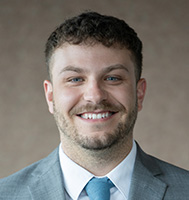 Joe Benbow, MD – resident, Department of Pediatrics, University of Wisconsin School of Medicine and Public Health Joe Benbow, MD – resident, Department of Pediatrics, University of Wisconsin School of Medicine and Public Health |
Friday, September 13
Multidisciplinary Forum
8-9:30 a.m. via zoom
Session Overview: The multi-disciplinary forum highlights four speakers, who each have 20 minutes to talk about what their clinic does, who is apart of it, and how it operates within the UW Health system. This is a great opportunity for people to hear about different parts of UW Health and learn about clinics they may not know exist!
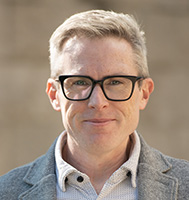 |
Moderator: Daniel O’Connell, MD – associate professor, interim division chief, Division of Gastroenterology, Hepatology & Nutrition, Department of Pediatrics, University of Wisconsin School of Medicine and Public Health |
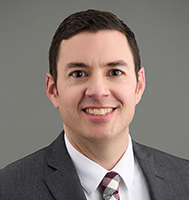 |
8-8:20: Neil Paloian, MD – associate professor, Division of Nephrology, Department of Pediatrics, University of Wisconsin School of Medicine and Public Health
Title: The Pediatric Bone and Mineral Metabolism Clinic – A home for children with metabolic bone disease Overview: Care for pediatric patients with medical bone disease is often fragmented amongst different subspecialists and practices fluctuate widely between institutions. At the UWHealth Pediatric Bone and Mineral Metabolism Clinic we have assembled a diverse team that together provides comprehensive evaluations, treatments, and long-term management for these children with primary or secondary metabolic bone disease. |
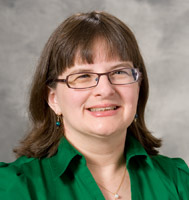 |
8:20-8:40: Ellen Connor, MD – professor, Division of Endocrinology and Diabetes, Department of Pediatrics, University of Wisconsin School of Medicine and Public Health
Title: Coming Soon! Overview: Coming Soon! |
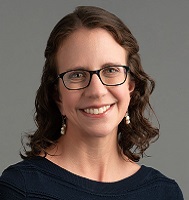 |
8:40-9 – Kerry Gannon-Loew, MD, MS – assistant professor, Division of General Pediatrics & Adolescent Medicine, Department of Pediatrics, University of Wisconsin School of Medicine and Public Health
Title: Adolescent Medicine Substance Use Disorders Support (SUDS) Clinic: A Primary Care-based Approach to the Treatment of Teens and Young Adults with Substance Use Disorders Overview: Substance use initiation often occurs in adolescence and consequences of use can be significant, including negative effects on physical and mental health and interpersonal conflicts. Substance use treatment for teens and young adults should be evidence-based, and tailored to the unique needs and goals of the individual. The Adolescent Medicine Substance Use Disorder Support (SUDS) clinic provides accessible, individualized, and primary care-based treatment for teens and young adults with substance use disorders. |
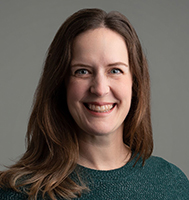 |
9-9:20: Emily Ruedinger, MD, MEd, associate professor, associate resident program director, Division of General Pediatrics & Adolescent Medicine, Department of Pediatrics, University of Wisconsin School of Medicine and Public Health
Title: Family Based Treatment for Restrictive Eating Disorders- Expanding Access for Early and Aggressive Intervention at UW Health Overview: Family Bast Treatment, also called FBT, is a 3-phase, standardized model of care for children and teens <18 years old with anorexia nervosa, atypical anorexia nervosa and bulimia nervosa. In FBT, caregivers are empowered to be the primary directors of their child’s recovery. Team members serve as coaches and supports. FBT shows improved recovery rates compared to other models of care, and though it is not the right fit for every patient and family, it is considered the gold standard. Unfortunately, access to this evidence-based treatment model in our region has been quite limited due to a shortage of trained psychologists. The new FBT program, housed within UW Health Kids’s Adolescent Medicine clinic, employs a creative collaboration between medical providers, psychologists, and dietitians to enhance access to FBT. |
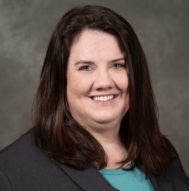 |
9:20-9:30: Jennifer Meier – associate department administrator, clinical operations, Department of Pediatrics, University of Wisconsin School of Medicine and Public Health |
Grateful Patient & Family Philanthropy Program – Creating a Culture of Giving
12-1 p.m. via zoom
Overview: Members of the development team from the UW Foundation will present an overview of the Grateful Patient & Family Philanthropy program. They will share insights on identifying grateful families, how they engage with donors to provide them a meaningful philanthropic journey, various ways donors can support through philanthropy, and opportunities for members of the healthcare team to partner with the development team.
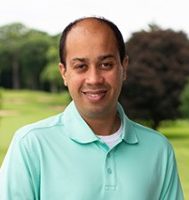 |
AJ Prathivadi – associate director of development, American Family Children’s Hospital, Wisconsin Foundation and Alumni Association |
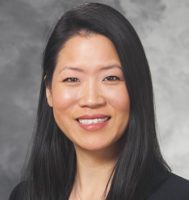 |
Michelle Oster – associate vice president & managing director, Wisconsin Medicine Advancement Group, Wisconsin Foundation and Alumni Association |
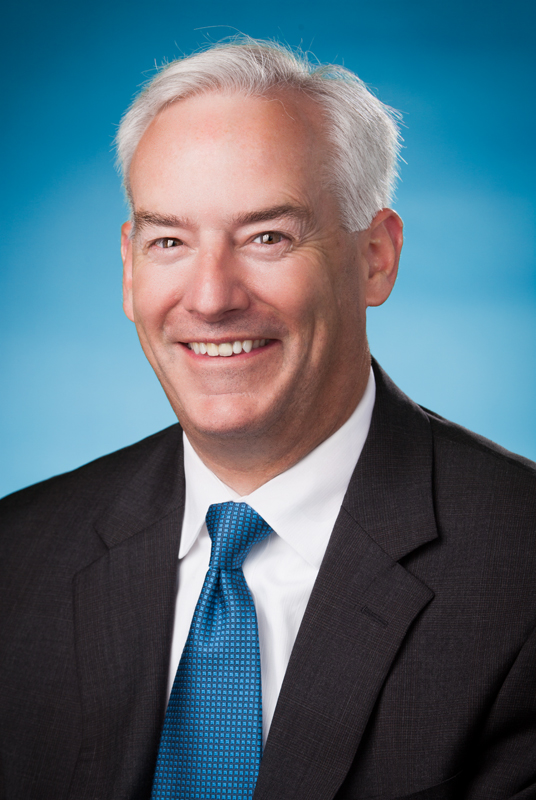 |
Thomas Spitz – president and chief executive of Dane County Bank, executive committee member for the Development Partners Advisory Board and Patient Family Advisory Council at American Family Children’s Hospital. |
 |
Claire Spitz – Madison College student |
